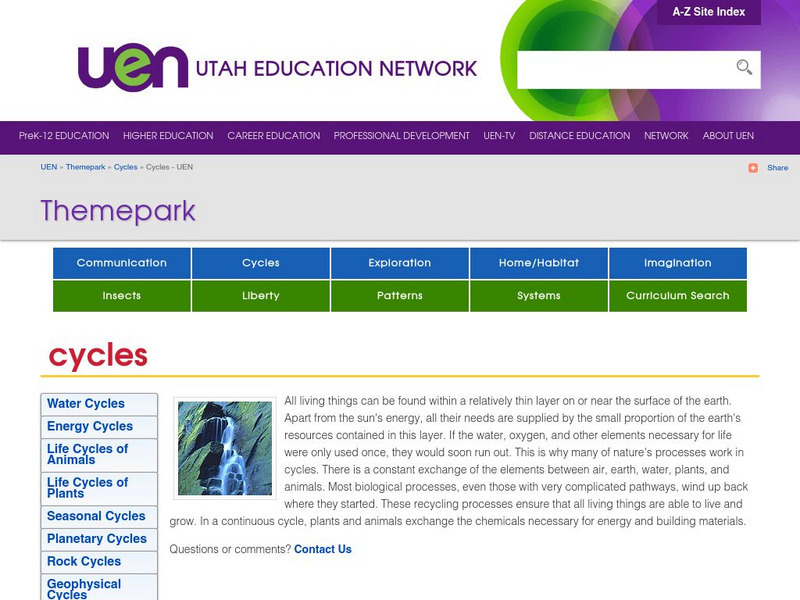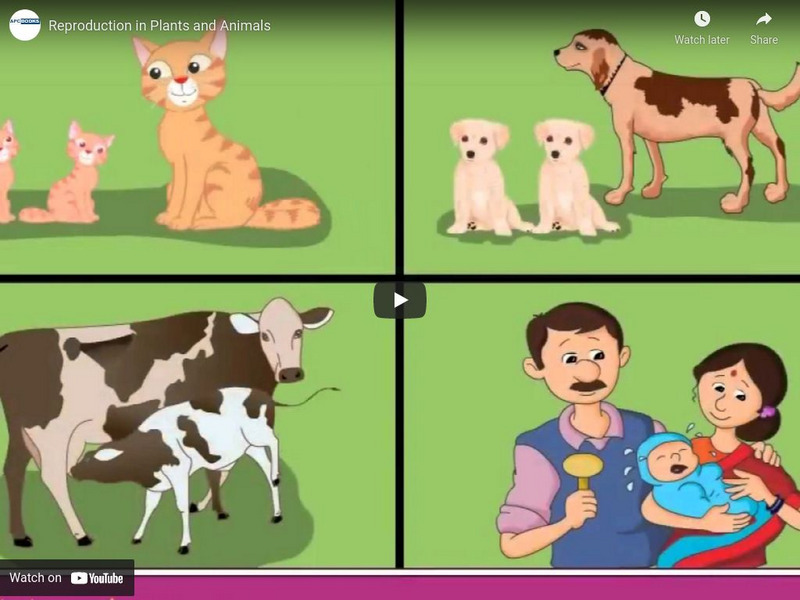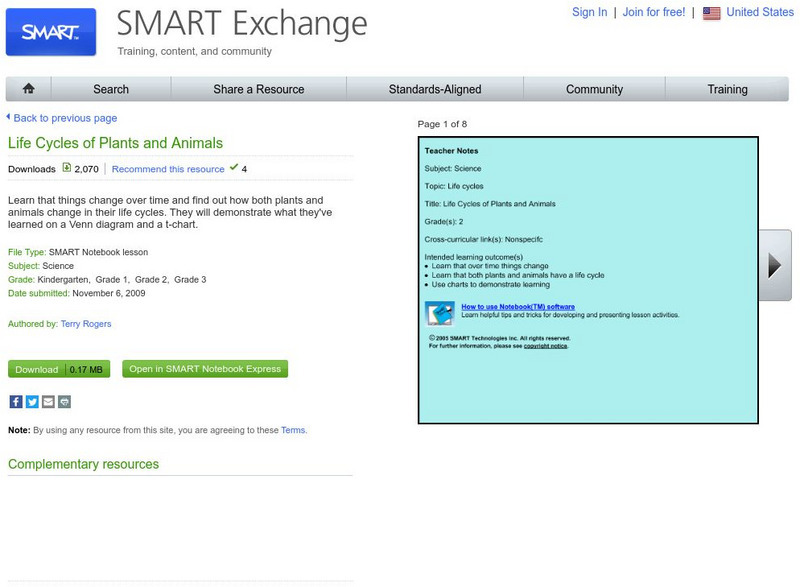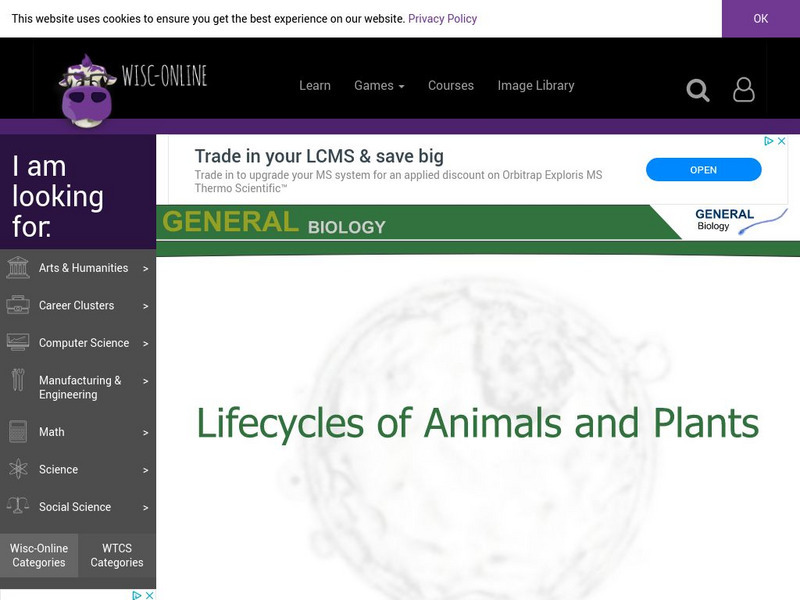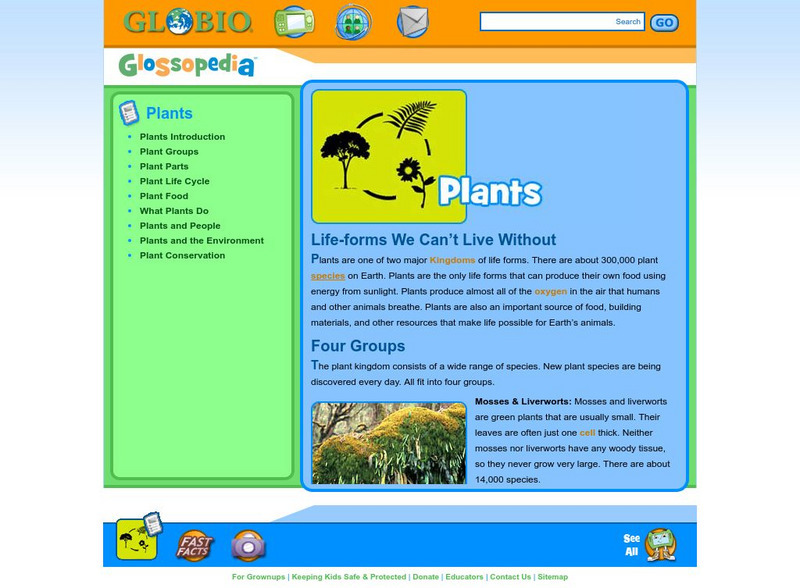Curated OER
Super Scientists Code
In this science learning exercise, students use the key code on the right to unscramble each of the scientists. They also match each of the scientists found to their correct description.
New York Times
New York Times: Crossword Puzzle: Animals Life Cycle
The New York Times Learning Network has developed interactive & printable crossword puzzles. The theme of this puzzle is Animals: Life Cycle.
Utah Education Network
Uen: Themepark: Cycles
This is a large collection of resources on cycles of nature and the Earth. There is a constant exchange of the elements between air, earth, water, plants, and animals. Most biological processes wind up back where they started. These...
Other
Reproduction in Plants and Animals
Reproduction in Plants and Animals. The ability to produce more organism similar to themselves is a very important characteristic of all living organisms. The process by which they do so is known as reproduction. [0:21]
Channel 4 Learning
Channel 4 Learning: Science Essentials: Life Cycles
Learn about the life cycles of plants and animals then demonstrate what you know with activities, a quiz, and related resources.
SMART Technologies
Smart: Life Cycles of Plants and Animals
This lesson activity helps students learn that things change over time and how both plants and animals change in their life cycles. They will demonstrate what they've learned on a Venn diagram and a t-chart.
Wisc-Online
Wisc Online: Lifecycles of Animals and Plants
This segment covers the lifecycles of various plants and animals. Illustrations begin with the production of a gamete and describe the processes that occur throughout the lifespan of living creatures.
BBC
Bbc Schools: Ks2 Bitesize: Science: The Living World
This landing page includes learning modules on the following topics of: animals, plants, microorganisms, life cycles and reproductions, food chains, habits, humans and the environment, adaptation, inheritance, and evolution.
Globio
Glossopedia: Plants
Plants are one of the two major Kingdoms of living creatures on the Earth. They are the only beings which produce their own food. Additionally, plants are necessary for animals to live. Plant anatomy, life cycle, reproduction and the...
ClassFlow
Class Flow: Life Cycles
[Free Registration/Login Required] Through this unit, children learn that plants and animals reproduce as part of their life cycle and that in every life cycle there are distinct processes and stages. They should begin to understand how...
Alabama Learning Exchange
Alex: What Is Alive?
This lesson is the opening lesson for a unit of study entitled "Why Doesn't A Caterpillar Grow Up To Be An Oak Tree?" during which students take a look at life cycles of plants and animals. This lesson will encourage students to explore...
Georgia State University
Georgia State University: Hyper Physics: Energy Cycle From Plants to Animals
Find out about the essential role energy plays in cell function and in sustaining life. Trace energy transformations as they pass from one living thing to another.
Other
Study of Northern Virgina Ecology: Black Carpenter Ant
Lots of information about the black carpenter ant. Learn about their physical characteristics, colonies, life cycle, food sources, and predators. A detailed chart listing many plants and animals permits exploration of their relationships...
Science Education Resource Center at Carleton College
Serc: Phenology and Weatherguide Calendar
An activity where students observe the grounds around their school to study the plant and animal life cycle. Students will make a map of the school to keep track of their observations. Students will also compare their phenology calendar...
Smithsonian Institution
National Museum of Natural History: Ocean Planet
Detailed website that was a companion to a 1995 traveling exhibit of the Smithsonian. Links to lesson plans and other educational materials are at the bottom of the page. Enter the exhibition to explore the world of the ocean.
Concord Consortium
Concord Consortium: Stem Resources: The Virtual Field
A virtual lab that explores how offspring inherit different traits from their parents. Investigate these traits both in animals and plants. Understand that variations in offspring can lead to traits that allow survival. Lab includes...




